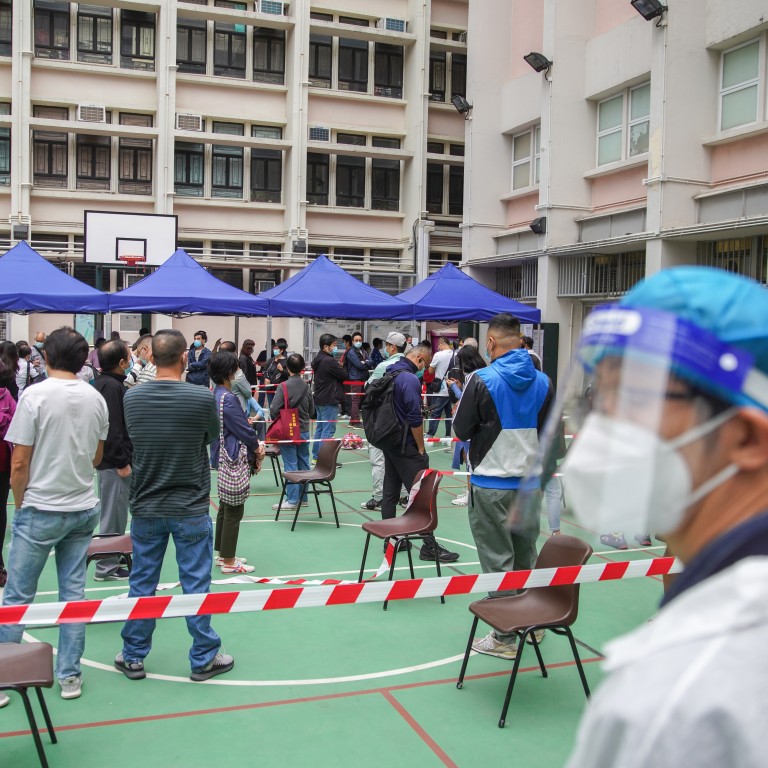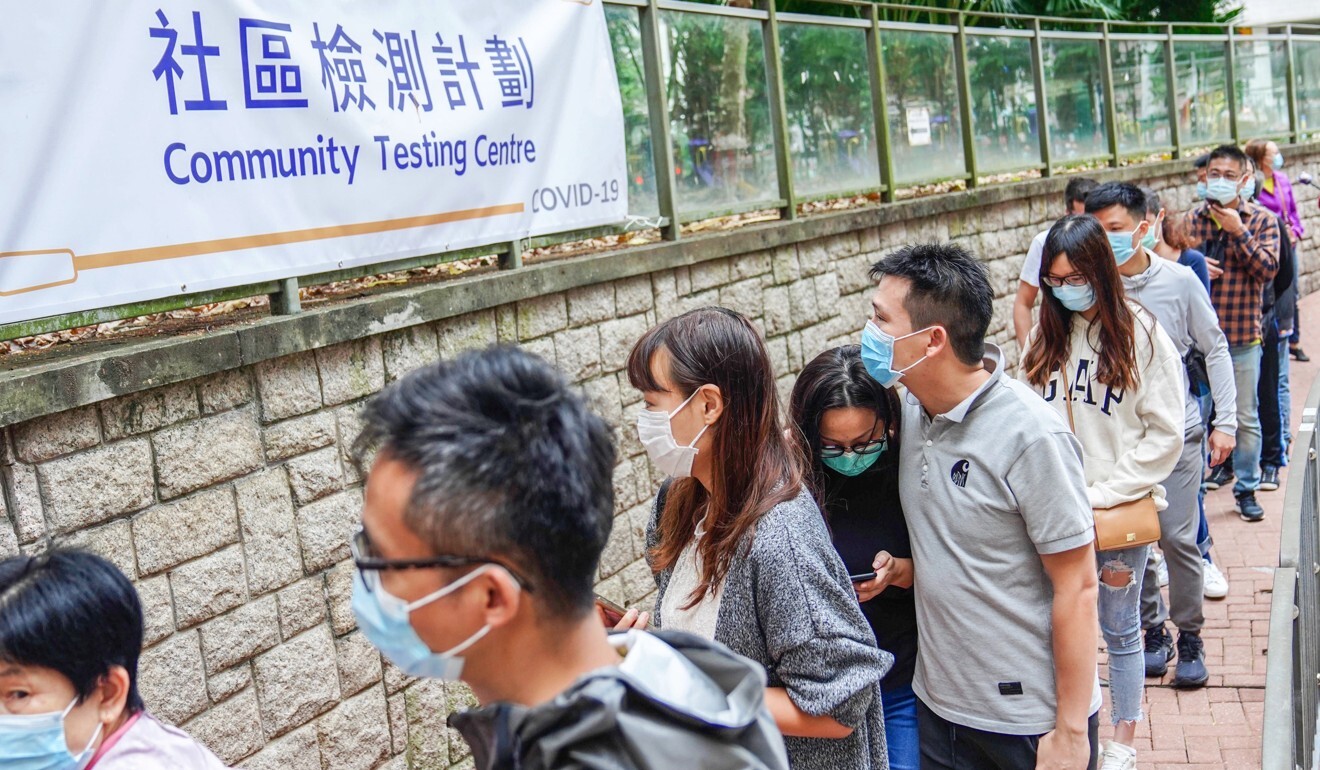
Coronavirus: Hong Kong authorities set target of zero daily infections as city confirms 14 new cases
- Sophia Chan warns ‘untraceable cases could explode and trigger fourth wave’, reminding residents to stay vigilant
- Four community testing centres kick off operations as social-distancing rules for restaurants, bars tighten again
Finance chief Paul Chan Mo-po and Secretary for Food and Health Professor Sophia Chan Siu-chee made clear their positions in the battle against Covid-19 in blog posts, as the city reported 14 new coronavirus cases and residents flocked to get tested at four community centres that began operating on Sunday.
The new infections pushed the tally of confirmed infections to 5,458, with 108 related deaths.
Nine of the new cases involved arrivals from Indonesia, Poland, the Philippines, Hungary, Bangladesh, Russia, Germany and the United Arab Emirates.
Of the five local cases, one had untraceable origins and involved a 49-year-old renovation worker who lived in Shing Wai House in Sha Tin’s Sun Tin Wai Estate. He last went to work at the Hong Kong Jockey Club in Happy Valley last Monday.
“We must set having zero local infections as a target,” Financial Secretary Paul Chan said. “Some infected patients may not show any symptoms, and thus there is still the threat of an invisible transmission chain.
“Some people think that mandatory testing may not work. But the reality is that a persistent outbreak is not good for the economy, people’s livelihood, family members who want to visit the elderly at care homes, as well as small businesses and workers. We must make an uneasy choice.”
He added the pandemic remained volatile and continued to exert pressure on the economy, which contracted 3.5 per cent in the third quarter this year. But he pointed out it was already an improvement from the 9 per cent drop in the second quarter.
“The volatile outbreak and measures introduced subsequently are the main factors affecting the economy,” Chan said. “To prevent a serious hit, we must respond with a comprehensive and suitable proposal.”
Singapore-Hong Kong travel bubble: All you need to know about flights and costs
A key factor to stabilise the economy was allowing people to resume travelling freely between Hong Kong and mainland China as soon as possible, Chan said
“There are signs showing local cases could rebound, so we must be on high alert. If we let our guard down, untraceable cases could explode and trigger the fourth wave,” Chan said. “In addition to the winter flu season, this wave could be worse than the last, so we must take strong action to prevent the coronavirus from spreading.”

Chan said screening residents was the focus of control measures, with four community testing centres set up in Quarry Bay Community Hall, Henry G Leong Yaumatei Community Centre, Lek Yuen Community Hall in Sha Tin and Yuen Long Town East Community Hall having started operations.
The centres would allow the government to handle any sudden increase in testing needs, such as during a community outbreak, Chan said, adding the facilities would also provide affordable options for residents who needed tests for personal reasons, such as work permits abroad.
Since January, more than 3.8 million tests had been administered in Hong Kong, which meant an average of 500,000 tests for every 1 million residents, Chan said, a rate higher than in South Korea, Japan and the United States.
Long queues formed at all four centres before they opened at 8am. Some people complained it took them 3½ hours to complete the test, which costs HK$240.
At the centre in Yau Ma Tei, dozens of people waited to enter, with the first person arriving at 6am. The four centres will operate for three months from 8am to 8pm daily.
Former Hospital Authority chairman Anthony Wu Ting-yuk, who is chairman of Sunrise Diagnostic Centre which manages the Yuen Long operation, said 370 people had registered online and others took the tests on Sunday without prior appointments.
“We have seen many residents queuing today, so we will work at increasing manpower and the number of samples we can take,” he said.
Universities move cautiously with graduation ceremonies amid Covid-19
From Monday, restaurants will again be limited to serving four people per table, while the figure for bars will be capped at two. Authorities also announced on Saturday plans to regulate the number of people allowed to participate in staycations, while strengthening measures targeting those returning from abroad who were under quarantine in hotels.
The city’s No 2 official, Matthew Cheung Kin-chung, urged Hongkongers to download the government’s Leave Home Safe app from Monday so users could be notified of exposure risks in locations across the city.
More than 6,000 public and private establishments have joined the programme. The app will notify users and offer anti-epidemic advice if they go to a place an infected person has visited at roughly the same time.
Users can scan a QR code at participating locations to log the places they have visited.
Secretary for Development Michael Wong Wai-lun said construction of the new temporary hospital at the AsiaWorld-Expo would be completed in January. The hospital will have a gross floor area of 43,000 square metres.


